Broadband Bond On Ballot In Sharon Township, Michigan
On May 8th, voters in Sharon Township, Michigan, will decide whether or not they want to pursue an initiative to invest in a publicly owned fiber optic network. People in the community of less than 2,000 people don’t expect the national ISPs to bring them the connectivity they need, so they will decide if they should take another approach to connect every one with high-quality Internet access.
Like Nearby Lyndon
Sharon Township residents and businesses find themselves in the same type of situation Lyndon Township faced before they decided to take action to develop a network. There is limited wired Internet access in the community, but it’s almost always slow DSL from Frontier or AT&T. Many people must rely on expensive and unreliable satellite for service. Comcast also claims to have a small presence in Sharon Township.
When township supervisor Peter Psarouthakis tried to connect with representatives from incumbents to talk about improving services, he couldn’t reach anyone who could make decisions. Next, community leaders asked smaller companies to serve their areas, but "They told us they have no plans to operate in our township because we don't have enough people, and the return on investment isn't going to be there for them.”
Pressing On
When residents and business owners completed a survey in 2013 as the community considered what route to take, 70 percent of respondents said that their current ISP did not meet their needs; 95 percent expressed an interest in alternative choices for Internet access. Since then, community leaders have hired a consultant to develop a feasibility study and Sharon Broadband Yes, a grassroots group advocating for a fiber network, has formed to educate the public.


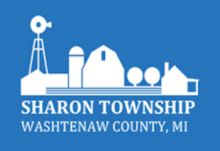

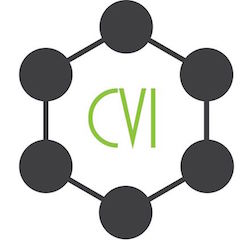 When looking for solutions, Hansen learned about
When looking for solutions, Hansen learned about 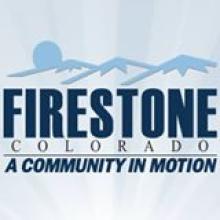
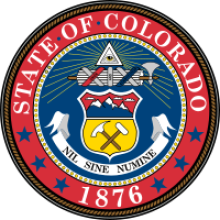

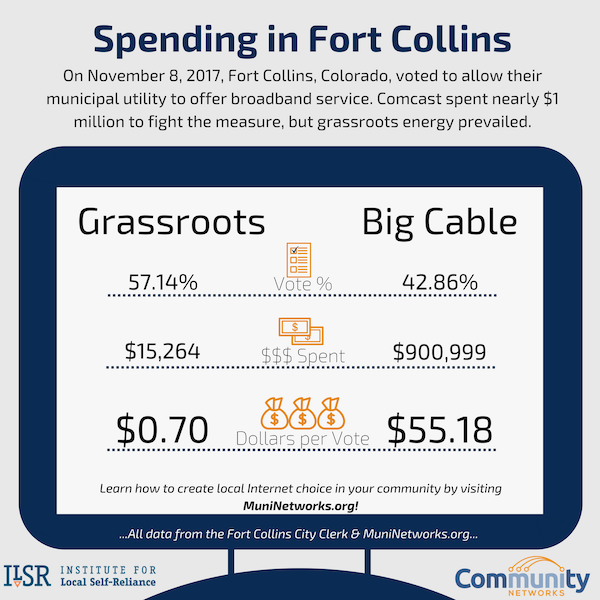
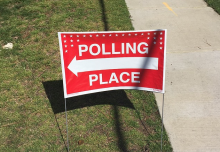


 In keeping with the usual modus operandi, out of the woodwork emerge lobbying groups that not-so-artfully mask incumbents like Comcast and CenturyLink. These groups are able to contribute large sums of money to whatever organization has been established, often in the form of a “citizens group,” to bombard local media with misinformation about municipal networks to try to convince voters to vote against the initiative. In Fort Collins, the “citizens group” happens to call itself
In keeping with the usual modus operandi, out of the woodwork emerge lobbying groups that not-so-artfully mask incumbents like Comcast and CenturyLink. These groups are able to contribute large sums of money to whatever organization has been established, often in the form of a “citizens group,” to bombard local media with misinformation about municipal networks to try to convince voters to vote against the initiative. In Fort Collins, the “citizens group” happens to call itself